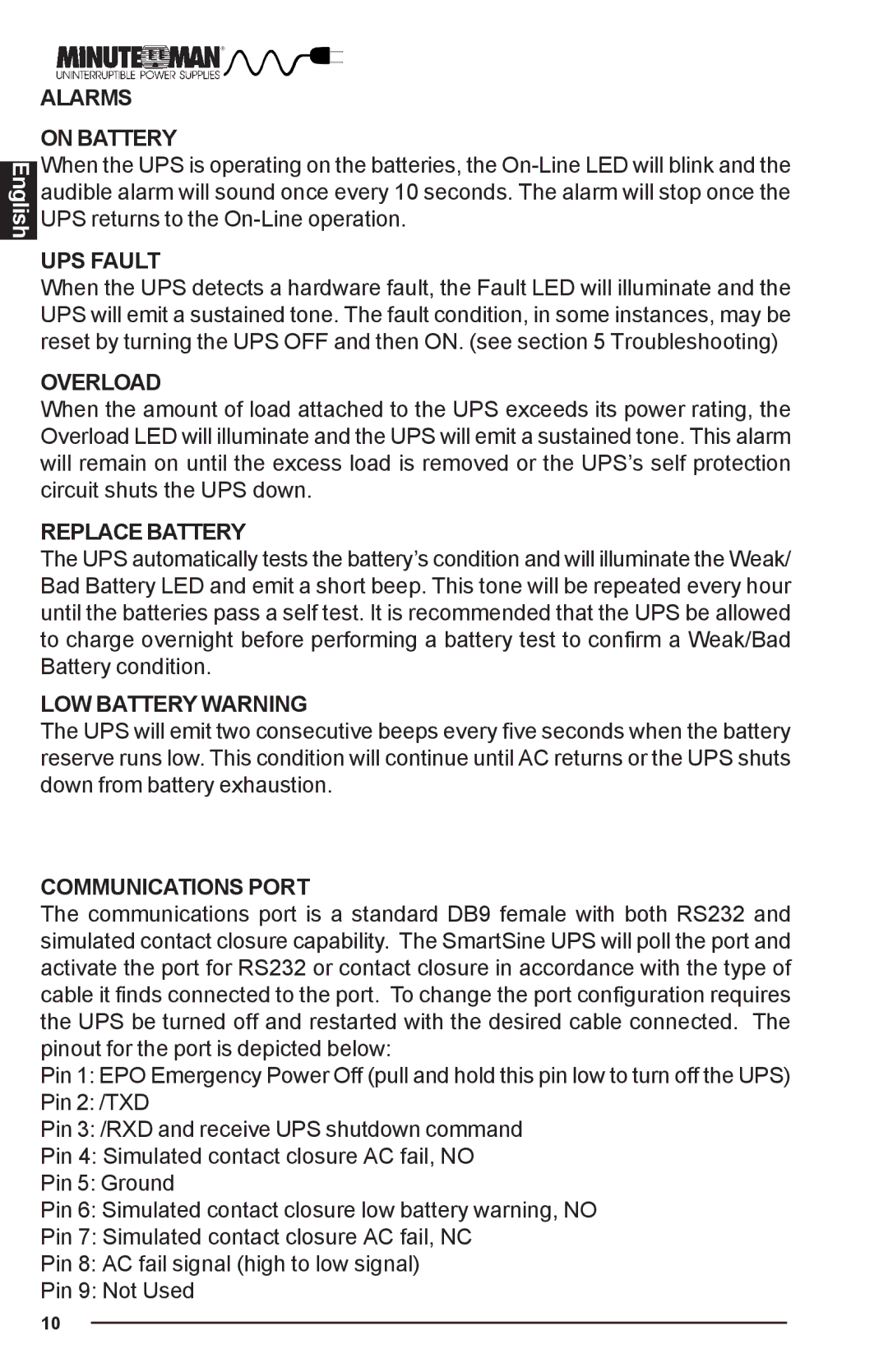
English
ALARMS
ON BATTERY
When the UPS is operating on the batteries, the
UPS FAULT
When the UPS detects a hardware fault, the Fault LED will illuminate and the UPS will emit a sustained tone. The fault condition, in some instances, may be reset by turning the UPS OFF and then ON. (see section 5 Troubleshooting)
OVERLOAD
When the amount of load attached to the UPS exceeds its power rating, the Overload LED will illuminate and the UPS will emit a sustained tone. This alarm will remain on until the excess load is removed or the UPS’s self protection circuit shuts the UPS down.
REPLACE BATTERY
The UPS automatically tests the battery’s condition and will illuminate the Weak/ Bad Battery LED and emit a short beep. This tone will be repeated every hour until the batteries pass a self test. It is recommended that the UPS be allowed to charge overnight before performing a battery test to confirm a Weak/Bad Battery condition.
LOW BATTERY WARNING
The UPS will emit two consecutive beeps every five seconds when the battery reserve runs low. This condition will continue until AC returns or the UPS shuts down from battery exhaustion.
COMMUNICATIONS PORT
The communications port is a standard DB9 female with both RS232 and simulated contact closure capability. The SmartSine UPS will poll the port and activate the port for RS232 or contact closure in accordance with the type of cable it finds connected to the port. To change the port configuration requires the UPS be turned off and restarted with the desired cable connected. The pinout for the port is depicted below:
Pin 1: EPO Emergency Power Off (pull and hold this pin low to turn off the UPS)
Pin 2: /TXD
Pin 3: /RXD and receive UPS shutdown command
Pin 4: Simulated contact closure AC fail, NO
Pin 5: Ground
Pin 6: Simulated contact closure low battery warning, NO
Pin 7: Simulated contact closure AC fail, NC
Pin 8: AC fail signal (high to low signal)
Pin 9: Not Used
10
